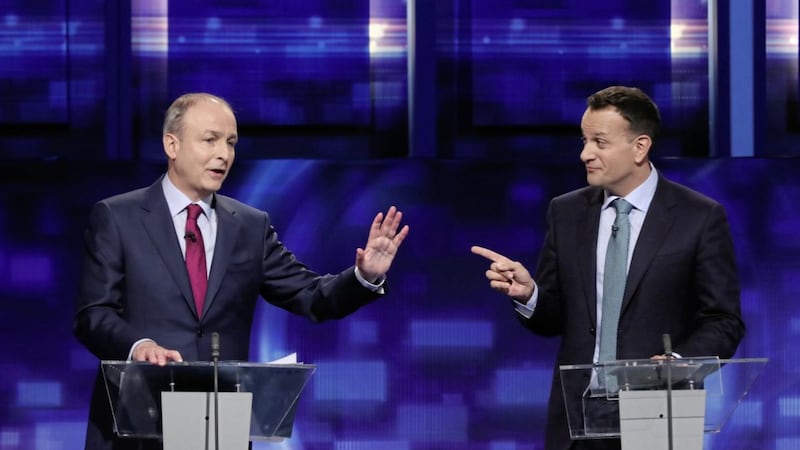In last week's column I noted that Fine Gael and Fianna Fáil were well down the road to an agreement, albeit on which would exclude Sinn Féin.
On Wednesday afternoon a paper was presented to both parliamentary parties for approval. At the time of writing neither group has formally endorsed it, although I'd be surprised if they didn't. After that, assuming all goes to plan, the paper would be presented to the smaller parties to see if they'd be willing to join a formal coalition: or, if not, whether they'd be prepared to support the formation of a minority government in the next few days, even if that only means abstaining in the key initial vote.
But let me go back to something I wrote on March 2: 'A deal with Fine Gael (I was writing about Micheal Martin), which excludes Sinn Féin, could do more long term electoral damage to his party than to either SF or FG, meaning it becomes a very risky strategy. Anyway, a deal with a party which failed to renew or increase its mandate after four years in government smacks of desperation; the sort of desperation which makes stability difficult....There are clearly a number of routes to keep SF out of government, but it's beginning to look like those options would actually be of enormous political and electoral benefit to the party. The old establishment needs to tread with enormous caution if it hopes to survive this present crisis.'
Yet it seems the 'old establishment' remains determined to keep SF out of office. But if the FG/FF deal gets off the ground and a government is formed in the next few days it does mean enormous risks for Varadkar and Martin. There is always a political/electoral price to be paid at the end of a crisis, when the electorate has the opportunity to make a judgment on the decisions made before, during and after the crisis. The final body-count (particularly if higher than expected) will sway votes away from the government.
The sheer scale of the debt to be serviced for years afterwards will scare voters and sway votes. A surge in unemployment; too many businesses too weak to reboot after a few months of non-trading; salary reductions; increased taxes; massive cuts in public spending; a general feeling of discontent rather than triumphalism: all of those factors, and many others, will have a massive impact on turnout at the election and the direction in which voters choose to go. Churchill may have been viewed as a war hero in 1945, yet it was Labour who won the general election with a whopping majority and built the UK's welfare state.
Sinn Féin is angry right now. As the party which won the most votes it says it shouldn't be excluded from a coalition. But the rules don't prevent it from being excluded. If FG/FF can muster the necessary support to form a government, then so be it. Let's not forget that Mary Lou McDonald had talks with the smaller parties and independents post-election to see if she could create her own coalition. She failed. She can't really blame others for succeeding.
The problem for Sinn Féin is the reverse of the problem for a FG/FF-led coalition. If it is seen to do well, to have made the right decisions in difficult circumstances, and to have set out a clear plan for post-crisis recovery, then Sinn Féin could take a massive hit at the next election: meaning it could be on the margins of real power for upwards of a decade. On the other hand, if the coalition makes a dog's dinner, then SF emerges as the only credible electoral alternative come the next election.
It's a very difficult position to be in: but it's not the worst position to be in. If the FG/FF coalition gets the go-ahead then SF becomes the official opposition and that's a crucial role to occupy during a crisis of this magnitude. Yes, it's also difficult, because you can't be seen to oppose just for the sake of opposing. But parties which have proved themselves during their time in official opposition, and which have a manifesto which chimes with the public mood, often do well in the next election. Indeed, a good opposition becomes a key player in resolving a crisis and often reaps electoral benefits.







